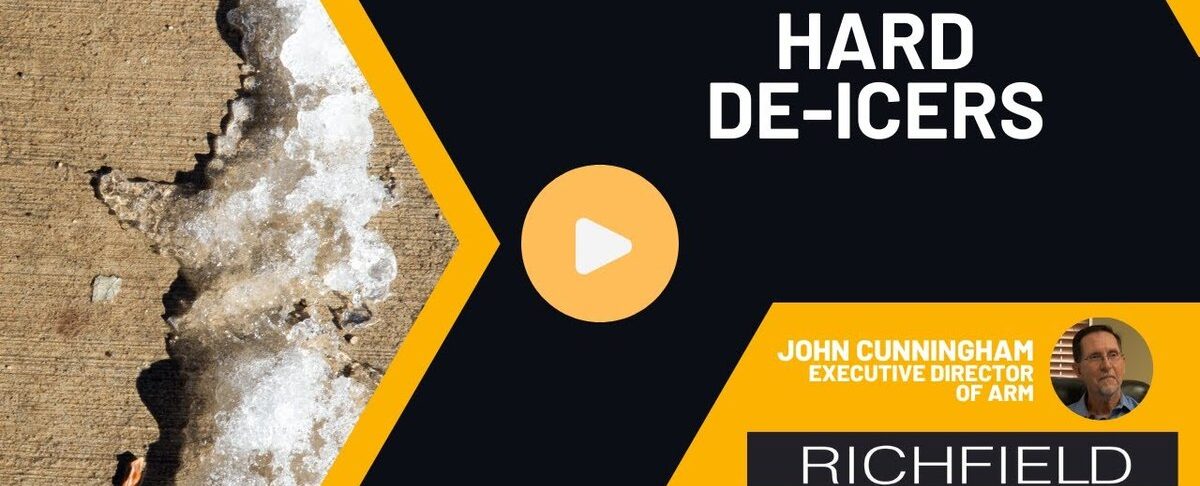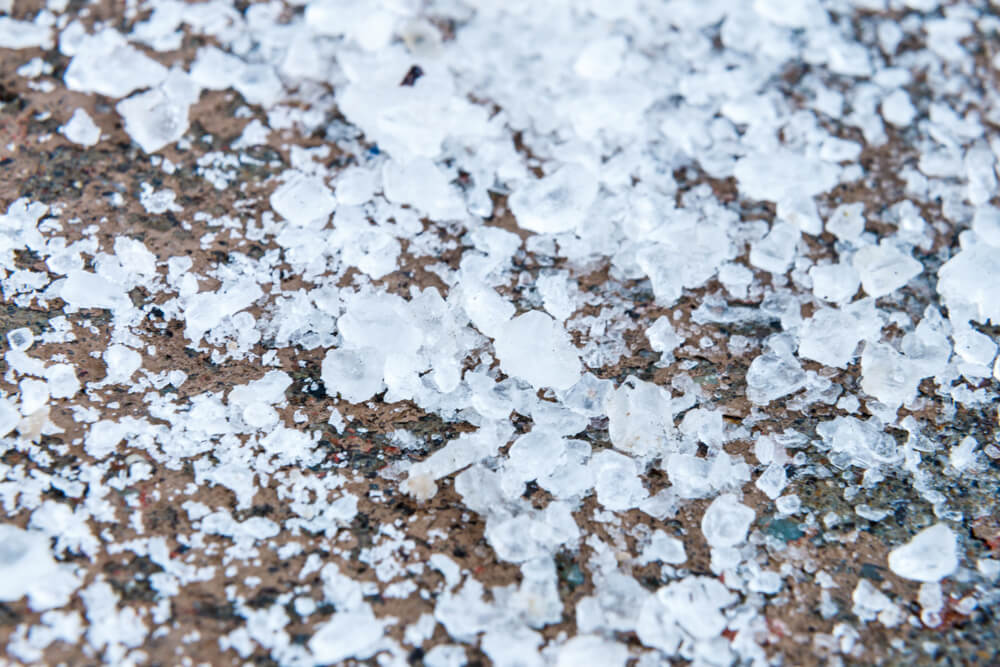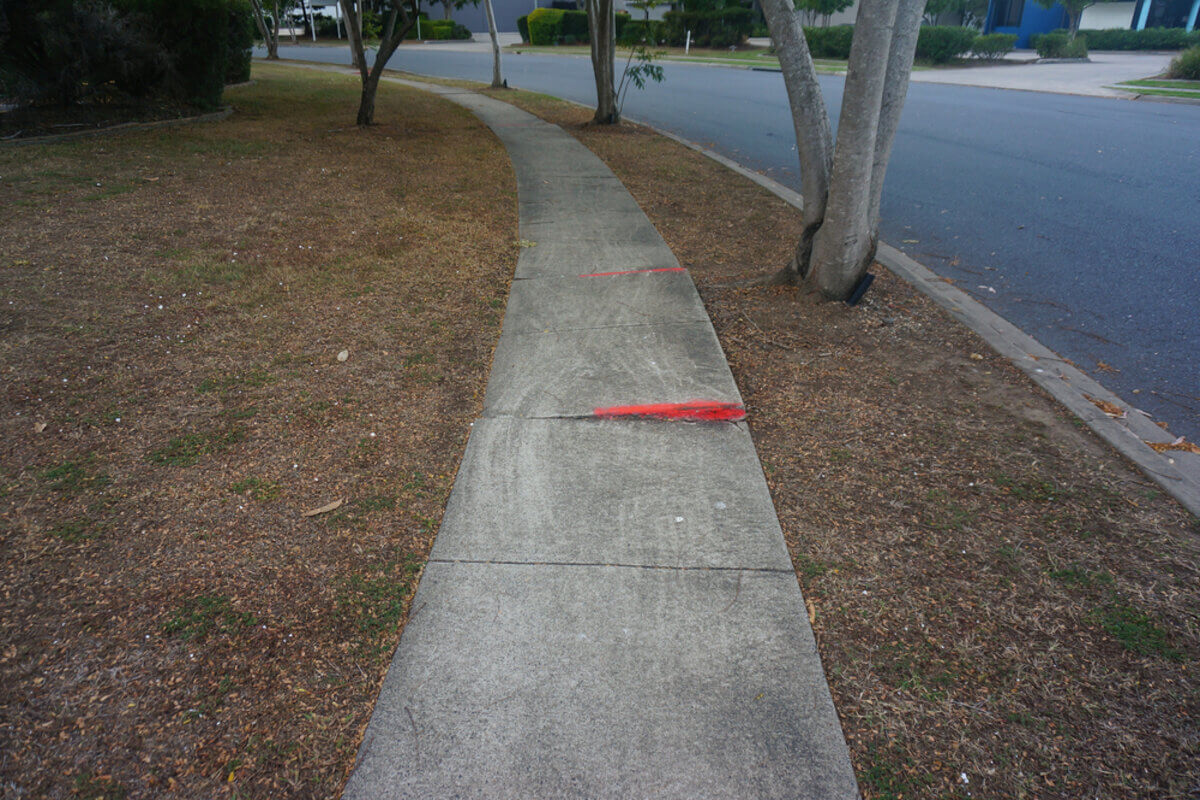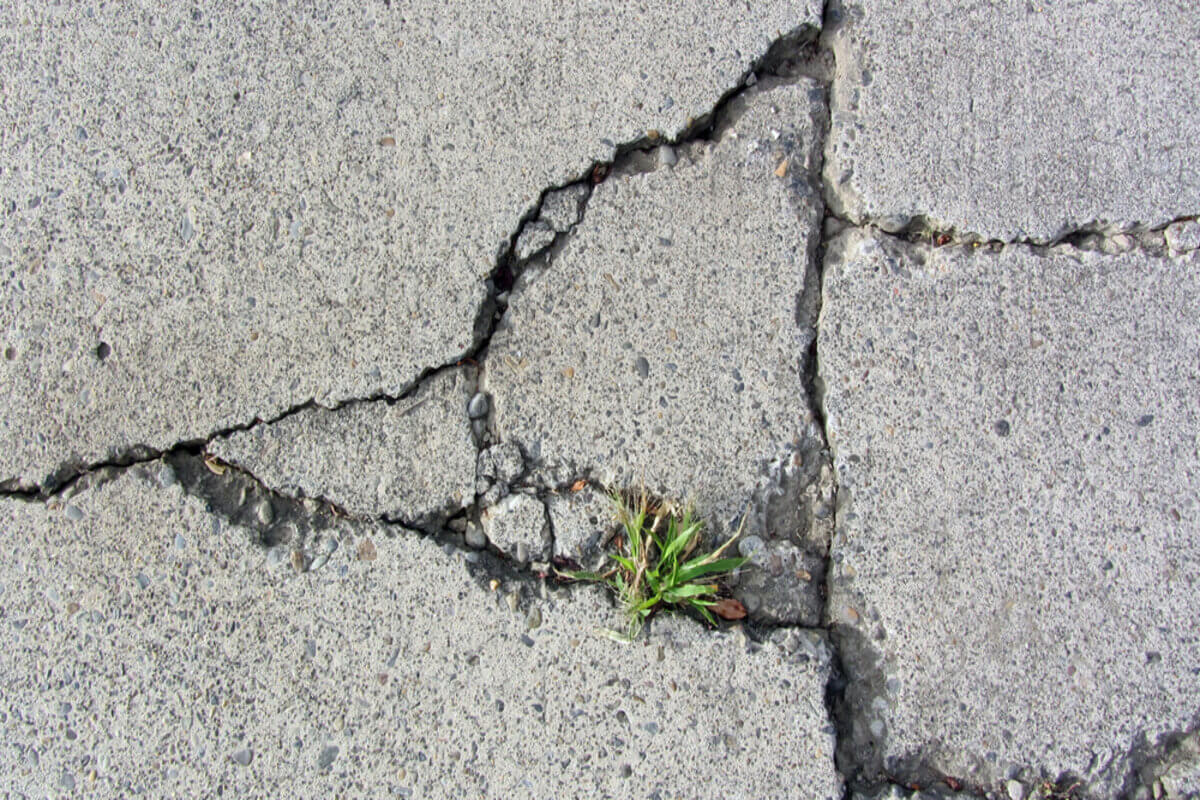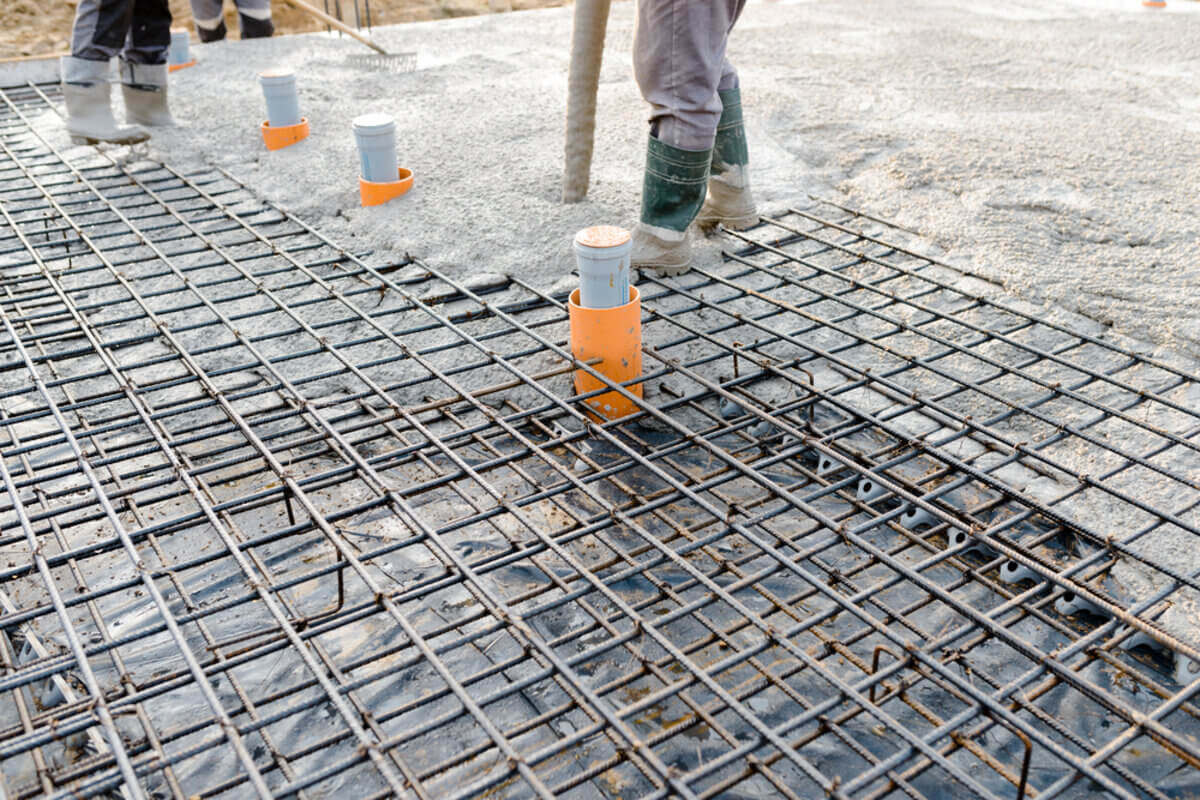Winter months bring about a slew of problems for homeowners and municipalities alike, and one of the most common issues is ice formation on roads and driveways. Deicers play an essential role in maintaining safe, ice-free surfaces. However, it’s crucial to understand the adverse effects of certain deicing agents, especially those that are hard on concrete surfaces.
This guide will delve into what typically happens to concrete when harsh deicers are used, the different types of deicing agents available, and how to mitigate damage.
What Happens When Harsh Deicers Meet Concrete
The use of deicers that can be harsh on concrete surfaces often leads to a phenomenon known as “scaling.” Scaling is the gradual wearing away of the concrete surface, which exposes the aggregate materials like rock and sand embedded beneath the surface layer.
Scaling
When you use a deicer that negatively impacts concrete, you’ll notice that the surface becomes flaky and worn. This is due to the scaling effect, which exposes the rock and sand underneath. It not only diminishes the aesthetic value of the surface but also compromises its structural integrity over time.
Variability in Deicing Agents
There are numerous deicing agents used by different jurisdictions—cities, counties, and states each may have their preferred type. These agents not only vary in their efficacy but also in how aggressive they are on various surfaces, including concrete.
Chemical Components and Their Effects
Most deicers are salt-based, including sodium chloride, calcium chloride, and magnesium chloride. While effective at melting ice, some of these chemicals can be particularly abrasive on concrete surfaces. Moreover, these deicers often stick to car tires and undercarriages during winter driving. Once you park your vehicle, the melted ice mixed with deicer can drip onto your concrete driveway or slab, contributing to potential surface damage.
Importance of Properly Cured Concrete
It’s imperative to have your concrete properly cured immediately after placement to mitigate the effects of harsh deicing agents. Curing plays a critical role in enhancing the concrete’s resistance to wear and tear, ensuring it is less susceptible to damage from deicers.
To further protect your concrete surfaces, consider applying sealers. Saline and siloxane sealers, in particular, are effective in preventing moisture from entering the concrete slab. These sealers create a protective barrier that guards the concrete against the harmful effects of deicing agents.
Periodic Maintenance
Even if you’ve taken all necessary precautions, no concrete surface is entirely impervious to damage. Therefore, it’s recommended to reseal the surface periodically, especially before the winter season begins. Regular maintenance can help extend the service life of your concrete structures and minimize damage from harsh deicers.
Conclusion
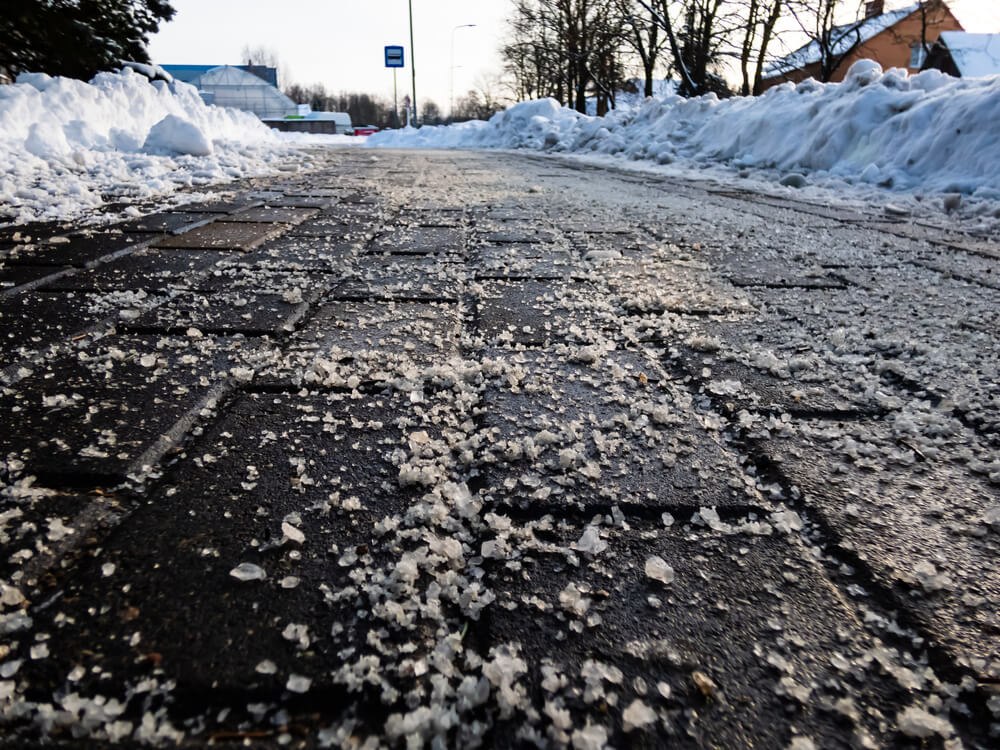
While deicers are indispensable for maintaining ice-free and safe surfaces during the winter months, it’s crucial to be aware of their potential harm to concrete. By understanding the impact of specific deicing agents, ensuring your concrete is properly cured, and using effective sealers, you can minimize the adverse effects and prolong the lifespan of your concrete surfaces.
Remember, maintenance is key—reapplying sealers as needed can offer additional protection against damaging deicing chemicals. Contact Richfield Concrete today to learn what happens if you use deicers that are hard on concrete.




